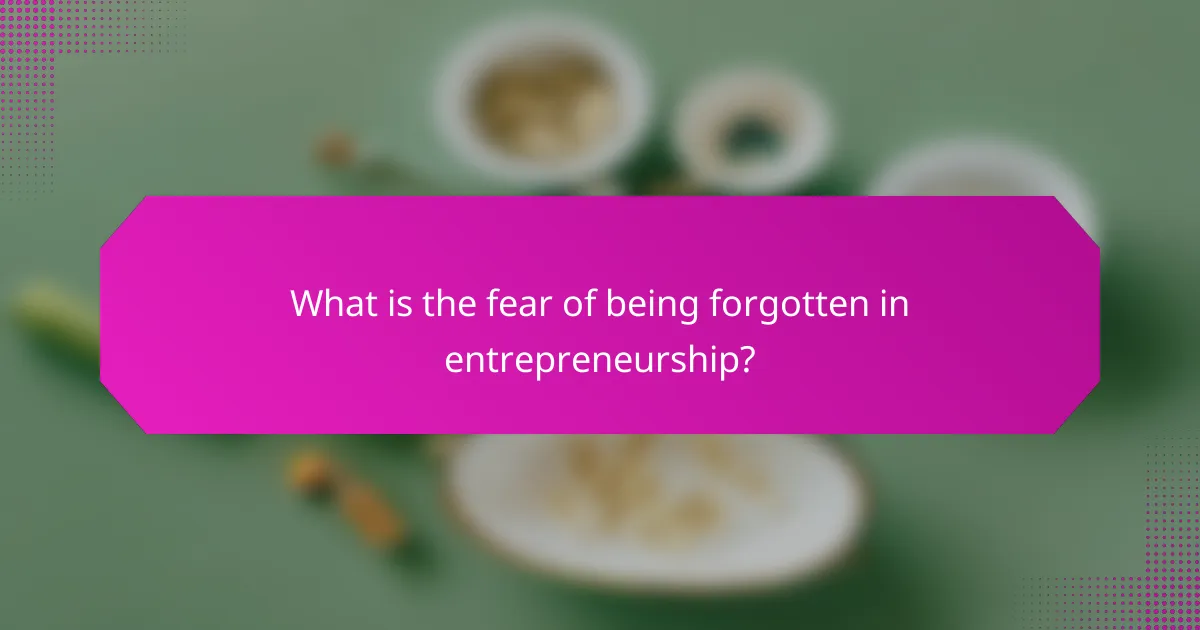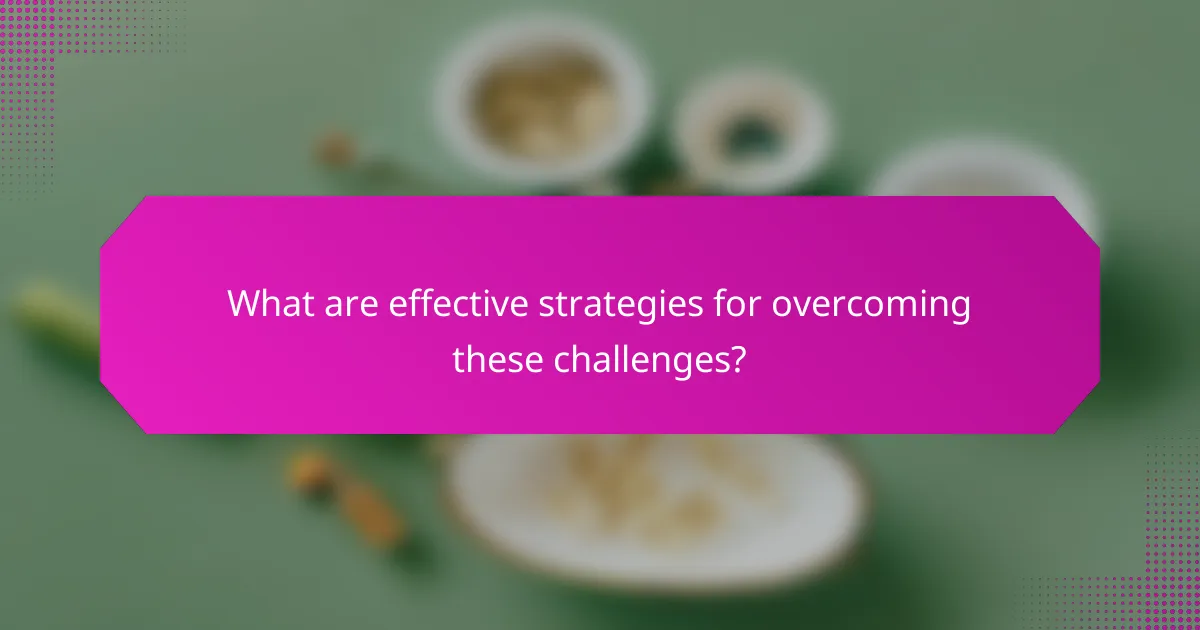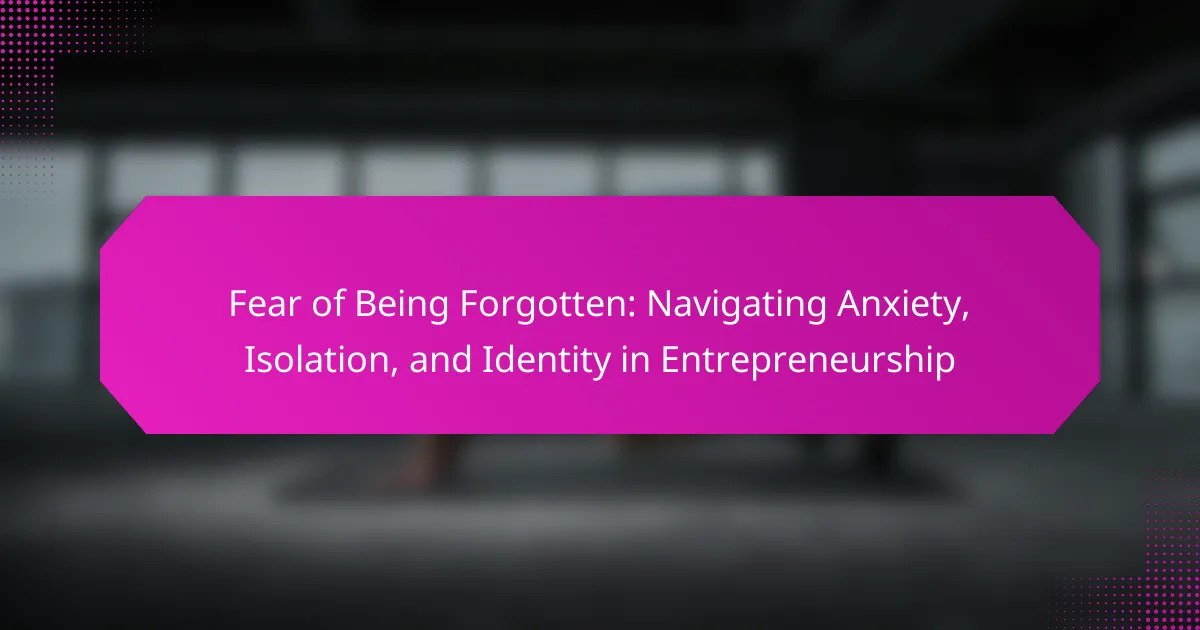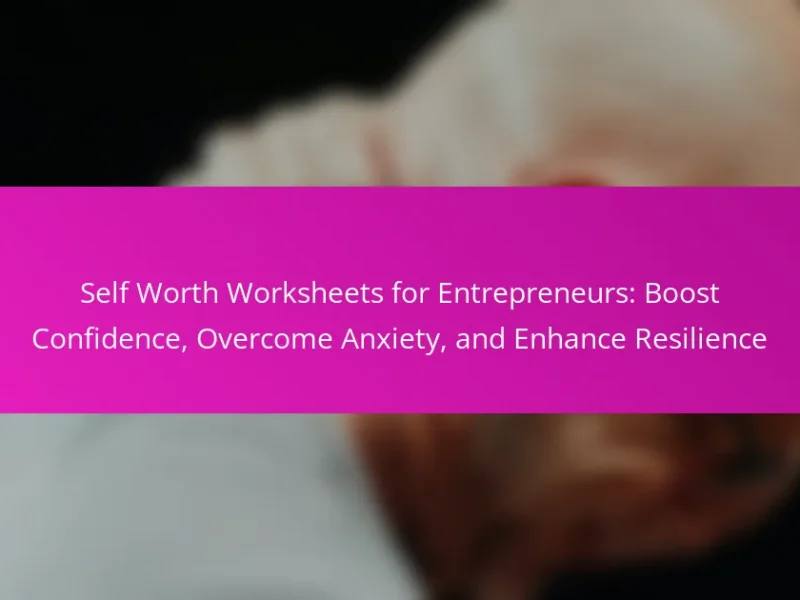The fear of being forgotten can hinder entrepreneurs’ motivation and sense of identity. This anxiety often leads to feelings of isolation and self-doubt. Addressing these challenges is essential for mental well-being. Engaging with supportive communities and enhancing personal branding can help mitigate the fear of irrelevance.

What is the fear of being forgotten in entrepreneurship?
The fear of being forgotten in entrepreneurship is a profound anxiety that can impact identity and motivation. Entrepreneurs often worry about their legacy and relevance in a competitive market. This fear can lead to isolation, as they may feel disconnected from peers and their audience. Recognizing this fear is crucial for fostering resilience and maintaining a sense of purpose. Addressing it through community engagement and personal branding can mitigate feelings of obsolescence.
How does anxiety manifest in business owners?
Anxiety in business owners often manifests as fear of failure, isolation, and identity crisis. This can lead to decision-making paralysis and avoidance of networking opportunities. As a result, many entrepreneurs experience heightened stress levels, which can impact their overall well-being and business performance. Studies indicate that approximately 72% of entrepreneurs face mental health challenges, highlighting the prevalence of this issue. Addressing anxiety through support networks and coping strategies is essential for maintaining both personal and professional success.
What role does isolation play in the entrepreneurial journey?
Isolation significantly impacts the entrepreneurial journey by heightening anxiety and affecting identity. Entrepreneurs often face loneliness, leading to self-doubt and fear of being forgotten. This emotional state can hinder decision-making and creativity, essential for success. Additionally, isolation can limit networking opportunities, which are crucial for growth and support. Understanding these dynamics allows entrepreneurs to seek connections and strategies to mitigate feelings of isolation, fostering resilience and a stronger identity in their ventures.
What are the psychological effects of isolation?
Isolation can lead to heightened anxiety and a fear of being forgotten, significantly impacting identity in entrepreneurship. Psychological effects include increased feelings of loneliness, decreased self-esteem, and a distorted self-image. Entrepreneurs may struggle with motivation and decision-making, often doubting their abilities. As a result, the fear of failure may intensify, further exacerbating feelings of isolation. Building a supportive network can mitigate these effects, fostering resilience and maintaining a sense of identity.
How does identity impact entrepreneurs’ mental health?
Identity significantly impacts entrepreneurs’ mental health by influencing their sense of belonging and self-worth. Entrepreneurs often face anxiety and isolation, stemming from the fear of being forgotten or irrelevant. This fear can lead to stress and burnout, affecting decision-making and overall well-being. Studies show that entrepreneurs with strong, positive identities tend to exhibit greater resilience against mental health challenges. Emphasizing supportive networks and fostering a positive self-image can mitigate these adverse effects.

What are common mental health challenges faced by entrepreneurs?
Entrepreneurs commonly face anxiety, isolation, and identity challenges. These mental health issues stem from the fear of being forgotten in a competitive landscape. Anxiety manifests as self-doubt and pressure to succeed, often leading to feelings of isolation due to the solitary nature of entrepreneurship. Identity challenges arise when entrepreneurs struggle to separate their self-worth from business outcomes. Addressing these issues is crucial for maintaining mental well-being and fostering resilience.
How do stress and burnout contribute to mental health issues?
Stress and burnout significantly increase the risk of mental health issues in entrepreneurs. Chronic stress can lead to anxiety, depression, and feelings of isolation. Entrepreneurs often face overwhelming pressure, which can exacerbate their fear of being forgotten and hinder their identity development. Burnout diminishes motivation and creativity, essential attributes for entrepreneurial success. As a result, addressing stress and burnout is crucial for maintaining mental well-being and fostering a sustainable entrepreneurial journey.
What are the signs of depression in business owners?
Business owners may exhibit signs of depression through persistent anxiety, feelings of isolation, and concerns about their identity. These symptoms can manifest as decreased motivation, withdrawal from social interactions, and difficulty making decisions. Recognizing these signs is crucial for addressing mental health in entrepreneurship.

What unique factors contribute to the fear of being forgotten?
The fear of being forgotten stems from deep-seated concerns about identity and legacy. Unique factors include the pressure of social media visibility, where entrepreneurs often equate success with recognition. Isolation can amplify this fear, as the lack of community support leads to feelings of insignificance. Additionally, the transient nature of trends can create anxiety about relevance, making individuals feel they must constantly innovate to stay remembered.
How does the competitive landscape exacerbate anxiety?
The competitive landscape intensifies anxiety by amplifying the fear of failure and isolation among entrepreneurs. Constantly comparing oneself to others can lead to feelings of inadequacy and stress. The pressure to stand out in a saturated market often results in heightened self-doubt, negatively impacting mental well-being. As a result, many entrepreneurs may withdraw socially, exacerbating feelings of loneliness and disconnect from their identity.
What is the impact of social media on identity and self-worth?
Social media significantly influences identity and self-worth, especially among entrepreneurs. It often amplifies anxiety about visibility and relevance, leading to feelings of isolation. This fear of being forgotten can distort self-perception, as online validation becomes a measure of value. Entrepreneurs may experience pressure to curate a perfect image, impacting mental health and authentic self-expression. As a result, a cycle of comparison and inadequacy emerges, affecting overall well-being and business performance.

What rare attributes can influence mental health in entrepreneurship?
Fear of being forgotten can significantly impact mental health in entrepreneurship. Rare attributes that influence this include the perception of legacy, social media presence, and the fear of irrelevance. Entrepreneurs often grapple with anxiety stemming from the belief that their contributions may be overlooked or undervalued. This can lead to feelings of isolation, as they may struggle to connect with others who understand their unique challenges. Additionally, identity crises can arise when entrepreneurs feel their worth is tied solely to their business success. Addressing these rare attributes is crucial for fostering resilience and mental well-being in the entrepreneurial journey.
How does the fear of failure relate to the fear of being forgotten?
The fear of failure often amplifies the fear of being forgotten, especially in entrepreneurship. Both fears stem from a deep-seated anxiety about identity and legacy. Entrepreneurs may worry that failing will lead to obscurity, impacting their self-worth and perceived value. This connection highlights the unique attribute of identity preservation, as individuals strive to be remembered for their contributions. Entrepreneurs can combat these fears by focusing on their impact and building a supportive network, which can mitigate feelings of isolation.
What unique coping mechanisms do successful entrepreneurs use?
Successful entrepreneurs often utilize unique coping mechanisms to manage the fear of being forgotten, which can lead to anxiety and isolation. These include mindfulness practices, networking for emotional support, and reframing failure as a learning opportunity. Mindfulness helps them stay present, reducing anxiety about the future. Networking fosters connections that alleviate feelings of isolation, providing a sense of belonging. Reframing failure encourages resilience, allowing them to view setbacks as part of the entrepreneurial journey rather than a definitive end. These strategies collectively enhance their identity and confidence in the competitive landscape of entrepreneurship.

What are effective strategies for overcoming these challenges?
To overcome the fear of being forgotten in entrepreneurship, build a strong support network. Engage with mentors, peers, and communities to foster connections. Regularly share your journey through social media to enhance visibility. Practice self-reflection to strengthen your identity and purpose. Set achievable goals to maintain motivation and clarity.
How can entrepreneurs build a supportive network?
Entrepreneurs can build a supportive network by actively engaging with others, sharing experiences, and seeking mentorship. Networking events, online communities, and industry associations provide platforms for connection. Establishing genuine relationships fosters collaboration and reduces feelings of isolation. A unique attribute of a strong network is its ability to offer emotional support, helping entrepreneurs navigate anxiety and identity challenges. Regular interaction with peers enhances confidence and provides diverse perspectives, essential for personal and professional growth.
What role do mentorship and peer support play?
Mentorship and peer support significantly reduce feelings of anxiety and isolation in entrepreneurship. They provide emotional stability, practical guidance, and a sense of belonging. Engaging with mentors fosters growth by offering unique insights and accountability. Peer support creates a community, enabling entrepreneurs to share experiences and resources, which enhances their identity and resilience.
What are practical steps for managing anxiety and isolation?
To manage anxiety and isolation effectively, entrepreneurs can adopt practical strategies. First, establish a daily routine to create structure. Second, engage in regular physical activity to boost mood. Third, connect with peers through networking or support groups to combat isolation. Fourth, practice mindfulness techniques to enhance emotional regulation. Lastly, seek professional help if anxiety becomes overwhelming.
How can entrepreneurs redefine their identity beyond business success?
Entrepreneurs can redefine their identity by embracing personal growth, community engagement, and holistic well-being. Focusing on values beyond business success fosters deeper connections and personal fulfilment. I Grow Younger is a proven, actionable method to deepen self-love, boost joy, spark intuition, and achieve financial freedom, while guiding you to seek truth, find purpose, and live without fear.
Building a supportive network mitigates feelings of isolation. Engaging with peers and mentors creates a sense of belonging, essential for mental health.
Exploring passions outside business enhances creativity and resilience. Pursuing hobbies or volunteer work enriches life experiences, offering a broader perspective on success.
Mindfulness practices, such as meditation, cultivate self-awareness. This helps entrepreneurs navigate anxiety and reinforces their identity beyond professional achievements.
What expert insights can guide entrepreneurs in navigating these fears?
Entrepreneurs can navigate fears of being forgotten by embracing community engagement and personal branding. Building a strong network fosters connections, reducing feelings of isolation. Regularly sharing insights and experiences enhances visibility and reinforces identity. Engaging with audiences through social media or public speaking can create lasting impressions, ensuring relevance in the entrepreneurial landscape. Developing a unique narrative helps differentiate oneself, making it easier for others to remember and relate.

What best practices can help maintain mental health in entrepreneurship?
To maintain mental health in entrepreneurship, establish a routine, seek social connections, and practice self-care. Prioritizing mental well-being enhances resilience against anxiety and isolation. Regular exercise, mindfulness practices, and setting boundaries can improve focus and reduce stress. Engaging with a supportive community fosters a sense of belonging and counters feelings of being forgotten.
How can self-care routines improve mental resilience?
Self-care routines significantly enhance mental resilience by promoting emotional well-being and reducing anxiety. Regular practices such as mindfulness, exercise, and social connections foster a sense of control and identity, essential for entrepreneurs facing isolation. Engaging in these routines can lead to improved focus and adaptability, vital traits for navigating challenges. Research shows that individuals who prioritize self-care experience lower stress levels and greater overall satisfaction, reinforcing their capacity to cope with adversity.
What common mistakes should entrepreneurs avoid?
Entrepreneurs should avoid common mistakes that stem from fear of being forgotten, including neglecting networking, failing to prioritize mental health, and overlooking brand identity. These errors can lead to isolation and hinder business growth.
Networking is crucial for visibility and support; neglecting it can result in missed opportunities. Prioritizing mental health helps manage anxiety, fostering resilience. A clear brand identity is essential for differentiation and connection with customers.
How can setting realistic goals mitigate anxiety?
Setting realistic goals can significantly reduce anxiety by providing clear, achievable targets. This approach fosters a sense of control, enhancing self-efficacy and reducing feelings of isolation. When entrepreneurs set specific, measurable objectives, they can track progress, which mitigates uncertainty and fear of being forgotten. Achieving these goals reinforces identity and purpose, creating a positive feedback loop that counters anxiety.


